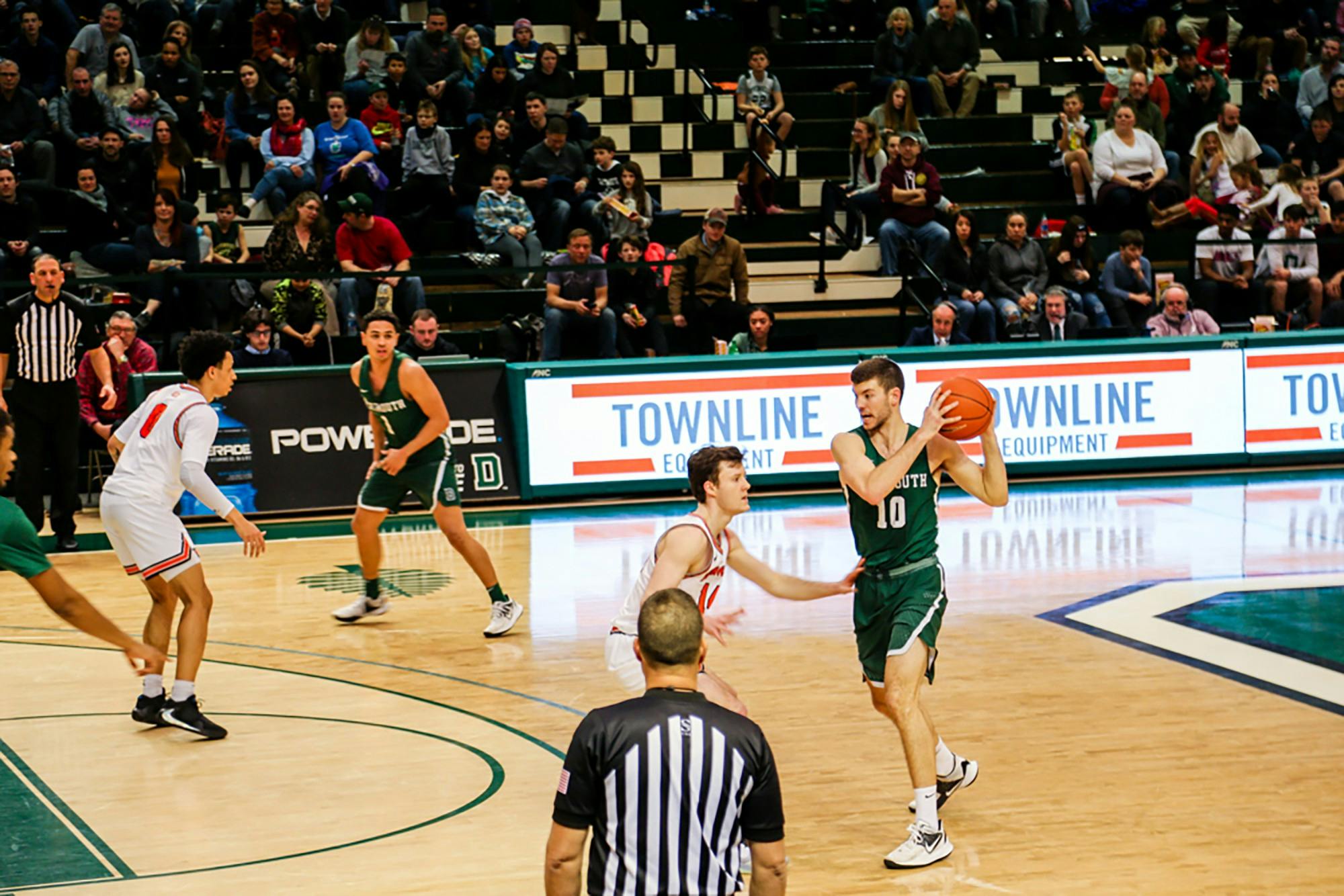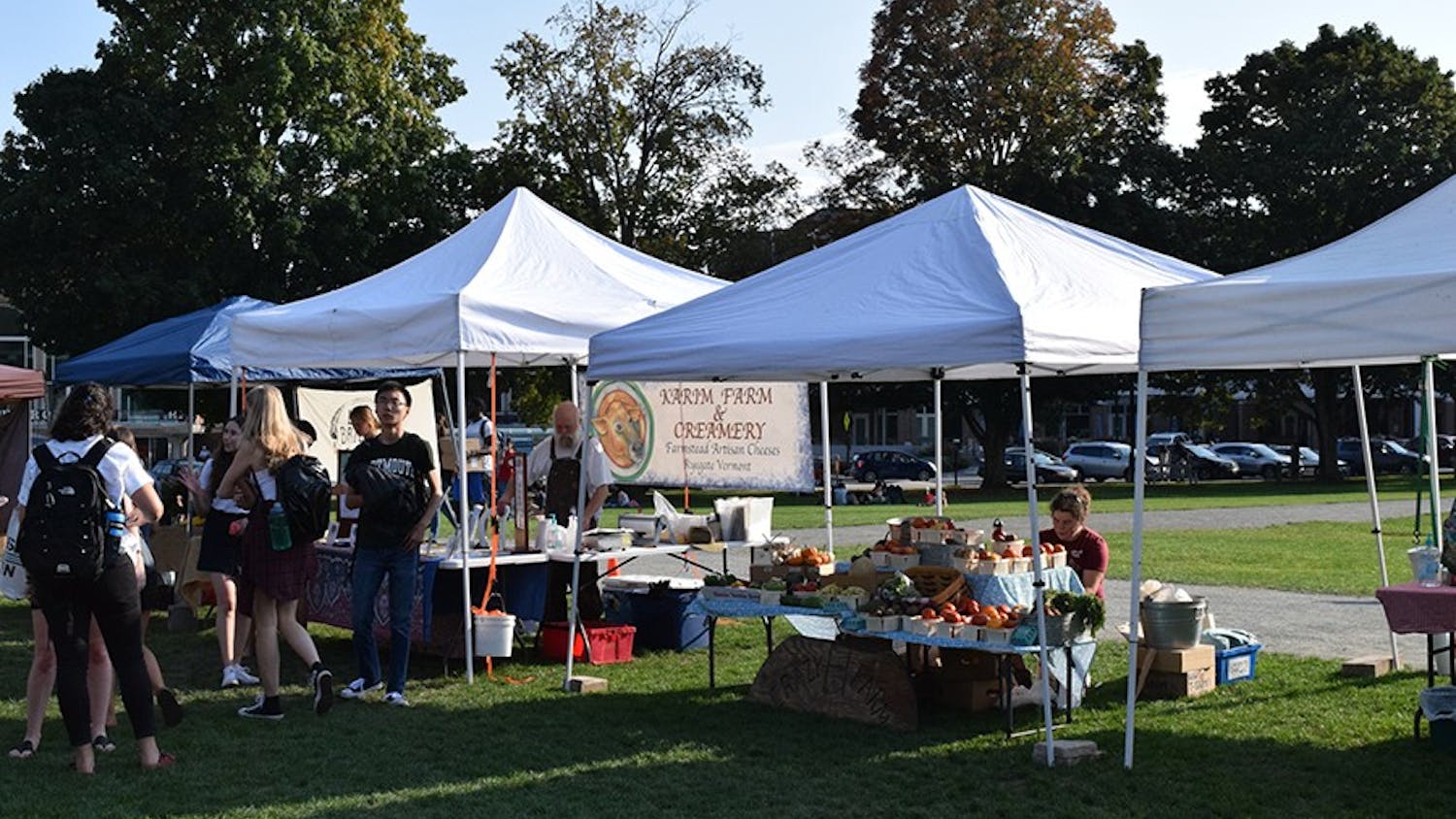Yale University’s unexpected victory over Auburn University in the NCAA men’s basketball tournament gained the Ivy League increased attention in college basketball.
Each year, the March Madness tournament is touted for its exciting matchups, bracket challenges and unpredictability. Since 1985, there have been an average of 8.5 upsets — when a team ranked five or more seeds lower than their opponent wins — per tournament, showing that underdogs do have a chance.
This year, Yale was the tournament’s “Cinderella Story”: the 13th-seeded men’s team beat Auburn, seeded fourth in the tournament.
Yale’s win proved especially surprising given the Ivy League’s historically minimal success in the tournament. With a 46-86 record since the men’s tournament’s start in 1939, Ivy League teams often have been seeded low and viewed as underdogs, according to the Washington Post.
However, in the past two years, some Ivy League teams have found relative success in the tournament. Last year, Princeton University’s 15th-seeded men’s team shocked college basketball fans when they won two games, including an upset against the second-seeded University of Arizona. These two wins put Princeton in the Sweet 16 for the first time in 56 years.
Ivy League success, however, is not equally shared. Dartmouth’s men’s basketball team has undergone an NCAA tournament drought since 1959, according to Dartmouth Sports.
Nevertheless, Dartmouth men’s basketball coach David McLaughlin said one Ivy’s success in the NCAA tournament is success for the entire League.
“We’re always pulling for the [Ivy] League in the postseason,” McLaughlin said. “It does nothing but help our league, our league’s brand and the League’s national and international exposure.”
Despite the underdog rhetoric surrounding Ivy League teams in March Madness, McLaughlin said he believes the League’s success is not a coincidence or luck. Rather, he said recent wins are an indication of how “impressive” Ivy League programs can be.
“[The success] is not so much a sign of hope, but just a fact of how good this league is,” McLaughlin said. “When you recruit to this league, you don’t just offer a world-class education, but you can also offer a great basketball experience to match.”
The sense of conference pride is shared by many students, who feel a connection to Ivy League student athletes. Benjamin Spears ’27 said the structure of a college basketball season contributes to this allegiance.
“I think conference allegiance is also a powerful thing,” Spears said. “For a lot of the season, you are in a bubble where you are playing only your conference. So when the team who chose to represent your conference is now in the tournament, you want them to succeed.”
At the same time, Spears said there is an aspect of conference rivalry that exists when teams like Yale and Princeton succeed.
“[Their success yields] mixed emotions because they are our rivals,” Spears said. “There’s a little bit of animosity and competition between schools.”
As a result of this rivalry, some basketball fans, such as Zubin Pande ’27, said they feel compelled to root against Ivy League programs in March Madness.
“The other Ivy League schools are our rivals in almost every way,” Pande said. “We are naturally inclined to root against them.”
Neha Srinivasan ’27 said she rooted for Yale but would have acted differently if they had played her home state team, the University of Oregon.
“I cheer Yale on if there is no conflicting interest,” Srinivasan said.
McLaughlin added that Ivy League success in the NCAA tournament demonstrates an increase in the League’s competitiveness — for which McLaughlin said he is preparing Dartmouth’s team. During this off-season, McLaughlin said the men’s basketball team is defining their priorities on and off the court.
“For one, we want to be great communicators and competitors,” McLaughlin said. “We’ve been emphasizing how hard we have to work every possession.”
Along with competitiveness and communication, the team is looking for better execution and continued growth, McLaughlin said.
“We have to be known as an execution team and be very disciplined on the court,” McLaughlin added. “We only have a certain amount of time with [players] in the offseason, so it’s about setting that foundational piece where guys are developing with coaches now and continue to develop on their own in the summer.”
Sid Singh ’27 is a sports editor and reporter. He is from Bethesda, Md. and Singapore and is majoring in Economics and Quantitative Social Science. Sid is also an engagement manager for Consult Your Community and a member of the Raaz dance team.




